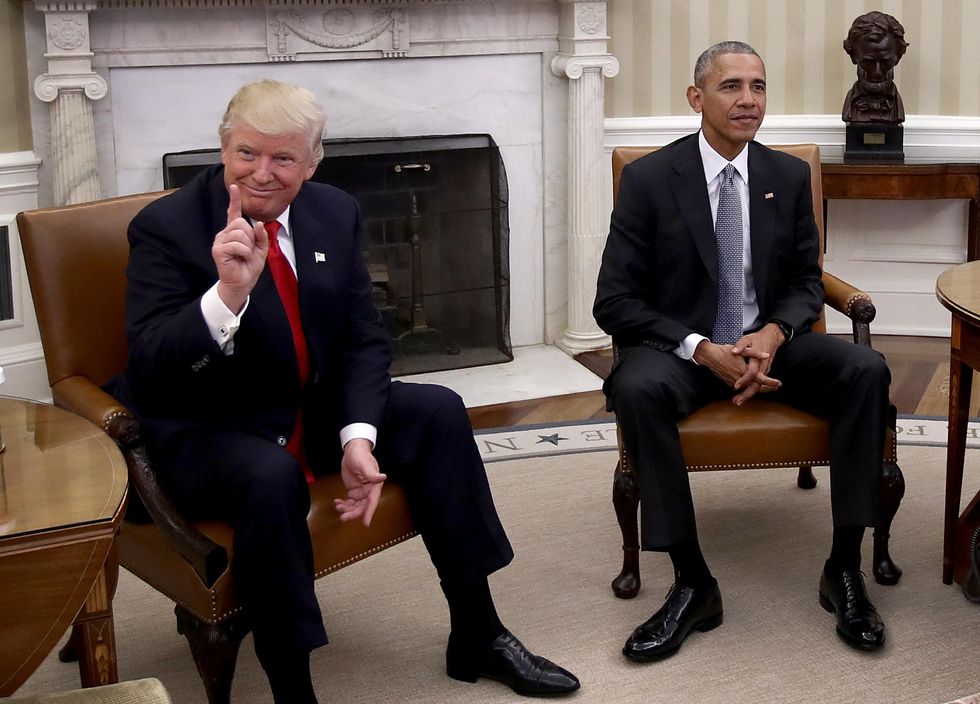
President Donald Trump once considered revoking former President Barack Obama's access to intelligence briefings, the New Yorker reported on Monday. Trump denies the accusations. (Win McNamee/Getty Images)

The outrage machine has been in full gear since President Donald Trump revoked former CIA Director John Brennan's security clearance last week. Trump has threatened to take similar action against additional former top government officials.
According to a new report, Trump even once considered denying former President Barack Obama access to national security intelligence briefings, a step some analysts are calling "un-American."
The New Yorker reported Monday that early in Trump's administration, around the time he accused Obama of spying on him at Trump Tower during the 2016 presidential contest, advisers close to the president urged him to revoke Obama's access to intelligence briefings.
It was around this time that advisers also persuaded Trump to begin revoking security clearances. According to the New Yorker, then-national security adviser H.R. McMaster "rebuffed" suggestions to revoke clearances and ultimately extended those of intelligence officials before him.
Indeed, it was also McMaster who persuaded Trump to not revoke Obama's access to presidential intelligence briefings, the New Yorker reported.
All living former presidents have access to intelligence briefings for several reasons, including because they continue to meet with foreign leaders on behalf of the U.S. post-White House.
During an interview on CNN following the New Yorker's report, Michael Hayden, the former director of the National Security Agency, characterized the possibility of Trump revoking Obama's access to intelligence as "un-American."
He said:
It would be absolutely unprecedented. To preserve the dignity of the office, of the men who have served in it, you do update former presidents. Number one, as a practical matter, you kinda want to keep them on your side. You want them to feel part of governance, so that when they may be asked a question — the best former presidents stay quiet — but if they may be asked a question, they can be broadly supportive.But again, that’s so violating of a norm of the peaceful transfer of power in the United States. It’s an almost unspeakable proposal.
Practically, Hayden said revoking a former president's access to intelligence is "negative," but constitutionally, Hayden called it "destructive."
"It would be very, very destructive," he said. "It is so un-American, it’s hard to imagine that happening in any but the most autocratic governments in the world."
In a tweet on Tuesday, Trump denied the New Yorker's report. He said he never discussed or thought about taking any action, calling the New Yorker's report "fake news."
Chris Enloe
Staff Writer